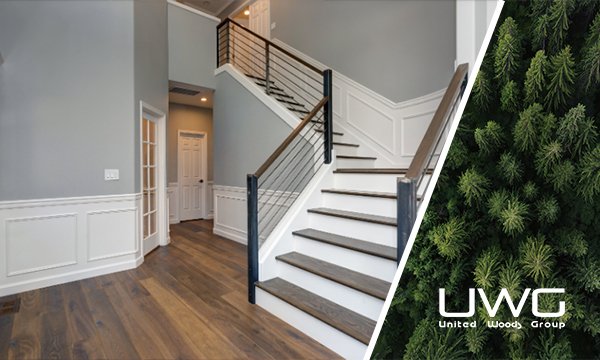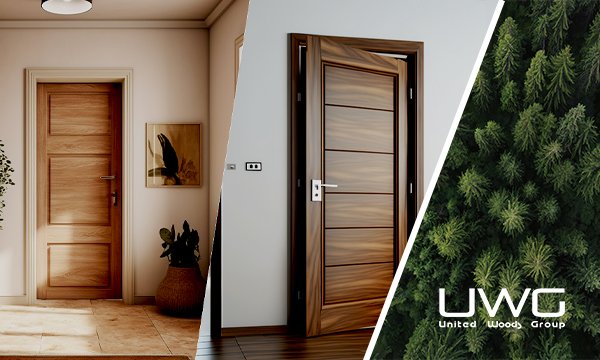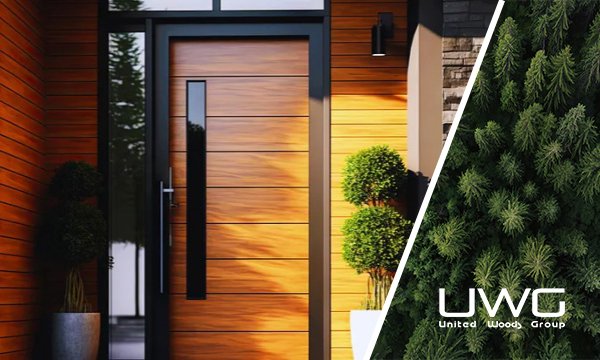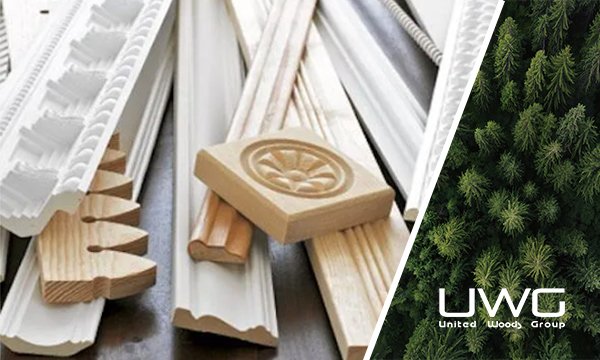Choosing the right interior doors for your space can be daunting. With many options, it’s crucial to understand which type best suits your needs. Whether you prioritize aesthetics, functionality, or budget, making an informed decision can enhance your interiors. Let’s explore the best options for interior doors and what makes them stand out.
Solid wood doors are widely considered the best for interior use due to their superior sound insulation, durability, and classic aesthetic. They provide a warm, natural look and can be customized to match various interior styles. Alternatively, solid core doors offer a cost-effective option with good soundproofing and a similar feel to solid wood doors. Hollow core doors are the most affordable but lack durability and sound insulation.
- What Kind of Door is Best for Interior?
- What is the Latest Trend for Interior Doors?
- Are Solid or Hollow Doors Better?
- Solid Core Interior Doors: A Comprehensive Guide
- Exploring Different Types of Interior Door Materials
- Prehung Interior Doors: Pros and Cons
- Top Interior Door Styles to Consider
- Why Choose Solid Core Doors?
- Summary
Now, let’s dive deeper into the different types of interior doors and their specific benefits and drawbacks.
What Kind of Door is Best for Interior?
Solid wood doors are often recommended for their excellent sound insulation and durability. These doors can be crafted from various wood species, offering diverse options to match your home’s decor. Solid wood doors also have a substantial feel that many homeowners prefer. However, they are more expensive than other types, making them a significant investment.
Additionally, solid wood doors can be customized in various designs, such as panel doors, flush doors, or French doors, providing flexibility in terms of aesthetics. Panel doors, for instance, can come in multiple configurations with different numbers of panels, adding a classic or modern touch to your interiors. Flush doors, on the other hand, offer a sleek, minimalist look that is perfect for contemporary spaces.
Solid wood doors are not only visually appealing but also provide excellent thermal insulation, which can contribute to energy efficiency in your home. By reducing heat transfer between rooms, solid wood doors help maintain a consistent temperature, potentially lowering your energy bills.

What is the Latest Trend for Interior Doors?
In 2024, minimalism is a leading trend in interior door design. This style emphasizes clean lines, simple geometric shapes, and uncluttered designs, promoting a sense of tranquility and organization. Minimalist doors are versatile, fitting seamlessly into various decor styles while promoting a calm and orderly atmosphere.
Another trend is the use of eco-friendly materials and sustainable practices in door manufacturing. Reclaimed wood doors, for example, are gaining popularity as they combine sustainability with a unique, vintage look. Additionally, doors made from bamboo or other fast-growing, renewable resources are becoming more common.
Sliding barn doors continue to be popular, especially in homes with a rustic or farmhouse aesthetic. These doors save space by sliding along a track instead of swinging open, making them ideal for smaller rooms or areas with limited space. Frameless glass doors are another trend, particularly in modern homes, as they offer a sleek, seamless look and maximize natural light.
Textured finishes and bold colors are also making a statement in 2024. Interior doors with unique textures, such as grooved or embossed designs, add a tactile element to the space. Bold colors, such as deep blues, greens, or even black, can create a striking focal point and add personality to the room.



Are Solid or Hollow Doors Better?
Solid doors, whether wood or core, are generally better than hollow doors in terms of durability and insulation. Solid wood doors offer the best insulation and feel substantial, but they come at a higher cost. Solid core doors are a middle-ground option, providing good soundproofing and durability at a lower price than solid wood. Hollow core doors, while budget-friendly, are less durable and provide little sound insulation.
When choosing between solid and hollow doors, consider the room’s purpose. For example, solid wood or solid core doors are ideal for bedrooms and home offices where privacy and soundproofing are important. Hollow core doors might be suitable for closets or other areas where noise control is less critical.
Solid doors also offer better security compared to hollow doors. The dense construction of solid wood or solid core doors makes them more resistant to forced entry, providing an added layer of protection for your home.

Solid Core Interior Doors: A Comprehensive Guide
Solid core doors are constructed with a wood fiber blend that makes them denser and heavier than hollow core doors. They mimic the feel of solid wood doors but at a fraction of the cost. These doors are excellent for areas where soundproofing is crucial, such as bedrooms and home offices. They also offer better thermal insulation, helping to maintain room temperatures efficiently.
Solid core doors can come in various styles, including panel and flush designs, allowing for customization to match your interior decor. They are also available in fire-rated versions, providing additional safety benefits. Fire-rated solid core doors can help contain fires and smoke, giving occupants more time to evacuate and protecting property.
One of the main advantages of solid core doors is their affordability compared to solid wood doors. While they offer many of the same benefits, such as soundproofing and a substantial feel, they are less expensive, making them a practical choice for many homeowners and builders.
Solid core doors are also easier to maintain than solid wood doors. They are less prone to warping or cracking and can be easily cleaned with regular household cleaners. This makes them an ideal choice for high-traffic areas or homes with children and pets.

Exploring Different Types of Interior Door Materials
- Wood: Traditional and versatile, offering a range of finishes. Wood doors can be painted or stained to match any decor and can be customized with various panel configurations and hardware.
- MDF: Smooth surface, ideal for painting, and cost-effective. MDF doors are stable and resistant to warping, making them a practical choice for humid areas such as bathrooms.
- Glass: Modern and allows light transfer, but less soundproof. Glass doors can come in clear, frosted, or decorative designs, adding a stylish element to any room.
- Metal: Durable and industrial-looking, suitable for modern designs. Metal doors are typically used in commercial settings but can also be used in residential applications for a unique, industrial look.
Each material has its advantages and disadvantages, and the best choice will depend on your specific needs and preferences. For example, if sound insulation and durability are top priorities, solid wood or solid core doors might be the best option. If budget is a concern, MDF or hollow core doors might be more suitable.
In addition to the primary materials, interior doors can also feature various types of hardware and finishes. For example, hardware such as handles, hinges, and locks can be chosen to complement the door’s design and the overall decor of the room. Finishes like paint, stain, or veneer can enhance the door’s appearance and provide additional protection against wear and tear.


Prehung Interior Doors: Pros and Cons
Prehung doors come with the frame, hinges, and door slab already assembled, simplifying installation. They save time and effort but are heavier and more challenging to transport. Prehung doors are ideal for new constructions or extensive renovations, as they ensure a perfect fit and alignment with the door frame.
One of the main benefits of prehung doors is the ease of installation. Because the door and frame are already assembled, installation is much quicker and less labor-intensive than installing a slab door. This can be particularly beneficial for large projects or for homeowners who prefer to do the installation themselves.
However, prehung doors are heavier and bulkier than slab doors, making them more challenging to transport and maneuver. They also require careful handling to avoid damaging the frame or door during installation. Additionally, prehung doors are typically more expensive than slab doors, so they may not be the best choice for budget-conscious projects.
Another consideration when choosing prehung doors is the finish. Prehung doors can come pre-finished, meaning they are already painted or stained, or unfinished, allowing you to customize the finish to match your decor. Pre-finished doors save time and effort, but unfinished doors offer more flexibility in terms of color and finish.

Top Interior Door Styles to Consider
- Panel Doors: Classic and versatile, fitting various decor styles. Panel doors come in a range of designs, from single-panel to multi-panel configurations, and can be customized with different panel shapes and sizes.
- Flush Doors: Sleek and minimalist, ideal for contemporary spaces. Flush doors have a flat, smooth surface that can be painted or veneered to match any decor.
- French Doors: Elegant and allow light flow, perfect for connecting rooms. French doors typically have multiple glass panes, adding a touch of elegance and sophistication to any room.
- Pocket Doors: Space-saving, sliding into the wall, suitable for small spaces. Pocket doors are ideal for areas where space is limited, such as bathrooms or closets, as they slide into the wall rather than swinging open.
Each style of door has its own unique benefits and can contribute to the overall aesthetic and functionality of your space. For example, panel doors are a timeless choice that can work with a variety of decor styles, while flush doors offer a sleek, modern look that is perfect for contemporary interiors. French doors can add elegance and light to a space, while pocket doors are ideal for maximizing space in smaller rooms.
In addition to these styles, there are also bi-fold doors, which consist of two panels that fold together when opened. Bi-fold doors are commonly used for closets or laundry rooms, providing easy access while saving space. Sliding doors are another option, often used for patios or as room dividers, offering a modern and functional solution.

Why Choose Solid Core Doors?
Solid core doors provide a balance between cost, durability, and soundproofing. They offer a substantial feel similar to solid wood doors and are suitable for high-traffic areas and spaces where privacy is essential. Their better insulation properties also contribute to energy efficiency.
One of the main advantages of solid core doors is their affordability compared to solid wood doors. While they offer many of the same benefits, such as soundproofing and a substantial feel, they are less expensive, making them a practical choice for many homeowners and builders.
Solid core doors are also available in a variety of styles and finishes, allowing for customization to match any decor. Whether you prefer a classic panel design or a sleek, modern look, solid core doors can be tailored to fit your specific needs and preferences.
In addition to their aesthetic and functional benefits, solid core doors are also more environmentally friendly than hollow core doors. Because they are made from a wood fiber blend, they use less raw material than solid wood doors, reducing their environmental impact. This makes them a great choice for eco-conscious homeowners looking to reduce their carbon footprint.
Solid core doors are also more resistant to damage compared to hollow core doors. Their dense construction makes them less likely to dent or crack, ensuring they maintain their appearance and functionality over time. This durability makes solid core doors an excellent investment for long-term use.

Summary
Choosing the best interior doors involves considering material, style, and functionality. Solid wood and solid core doors offer durability and soundproofing, while minimalist designs trend in 2024. By understanding these options, wholesalers can better cater to clients’ needs, offering high-quality, stylish, and functional interior doors.








